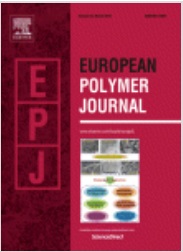The poly(ethylene 2,6-naphthalate) (PEN)/polycarbonate (PC) blends with the weight ratio of homopolymers 50/50 wt./wt. were prepared by injection molding using the Engel machine ES. One mixture was synthesized without the compatibilizer and the second with the compatibilizer SMAC (Samarium acetylacetonate hydrate). The influence of the compatibilizer on the physical and mechanical properties of the PEN/PC blends was investigated. The thermal properties of the new synthesized blends were studied by the differential scanning calorimetry (DSC). The molecular dynamics of the polymer blends was studied by the off-resonance NMR. The correlation times of the internal motions and the spectral density function amplitudes were estimated on the basis of the dispersion of the spin–lattice relaxation time in the rotating frame off-resonance. The rheological properties of the studied blends were investigated by dynamic mechanical thermal analysis (DMTA). The temperature dependencies of the storage modulus G′, of the loss modulus G″ and of the loss tangent (tan δ) were analyzed in order to evaluate the relaxation processes in the studied systems. The analysis of the DMTA data revealed the existence of two primary (α1 and α2) and two secondary (β and γ) relaxation processes in the blend of PEN/PC 50/50 wt./wt. and one primary (α) and two secondary (β and γ) relaxation processes in the blend of PEN/PC 50/50 wt./wt. with the compatibilizer. The motional parameters for the above – mentioned relaxation processes were calculated using the Havriliak–Negami formalism. The comparative analysis of the DSC, NMR off-resonance and DMTA results led to the clarification of the molecular motion in the PEN/PC 50/50 wt./wt. blends.

